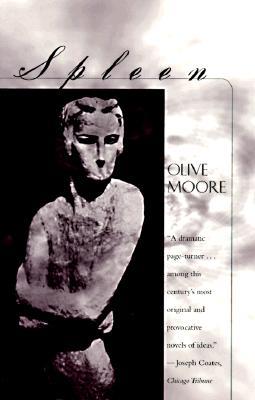Dalkey Archive Press first introduced readers to this "best-kept secret" of British literature with the hardback Collected Writings of Olive Moore in 1992. Spleen, the best of the author's three novels, tells the disturbing story of a woman who goes into self-imposed exile to an island off the coast of Italy after giving birth to a deformed child. Filled with self-reproach and guilt about her son and her life (having yearned to give birth to something "new and rare, " she blames herself for her son's deformity), Ruth broods on what it means to be a woman ("nature's oven for nature's bun") and the inequalities between the sexes. Filled with the colors and beauty of the Italian countryside and in a style similar to Virginia Woolf's, Spleen challenges the assumption that women can't help but be tender and maternal, that their heads are only "ever-enlarging hearts."

Dalkey Archive Press first introduced readers to this "best-kept secret" of British literature with the hardback Collected Writings of Olive Moore in 1992. Spleen, the best of the author's three novels, tells the disturbing story of a woman who goes into self-imposed exile to an island off the coast of Italy after giving birth to a deformed child. Filled with self-reproach and guilt about her son and her life (having yearned to give birth to something "new and rare, " she blames herself for her son's deformity), Ruth broods on what it means to be a woman ("nature's oven for nature's bun") and the inequalities between the sexes. Filled with the colors and beauty of the Italian countryside and in a style similar to Virginia Woolf's, Spleen challenges the assumption that women can't help but be tender and maternal, that their heads are only "ever-enlarging hearts."